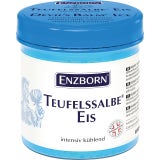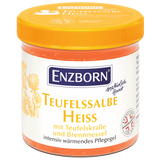Matcha - Healthy, Calming, and Invigorating Tea
Matcha is one of the finest and most expensive teas in the world. The reason for its high price is it's complicated preparation. Lately we hear more and more about the health benefits of this specialty. Here we'll take a closer look at those claims.
The origin of Matcha
The history of Matcha and its special preparation begins in the 6th century in China. Tea was revered as a medicinal plant and therefore the tea leaves were dried and then ground to a fine powder. This was a standard procedure for medicinal teas.
In the 12th century, a monk brought these preparation methods as well as few tea plants to Japan. There, the tea quickly became popular, while the knowledge of the tea seemed to disappear in China. In the 16th century, a ceremony was developed for preparing the tea. Even today, this traditional tea ceremony is a sign of education and cultured life in highly industrialized Japan.
How is Matcha made?
The production of Matcha does have some unique characteristics. It is very expensive, which is reflected in the price of high-quality tea powder. The first feature is that the tea plants that supply the leaves for Matcha tea are covered before the harvest with opaque networks. This extends the maturation process and simultaneously concentrates the ingredients. Both reflect a dramatic increase in quality.
After harvesting, the leaves are steamed and dried. They are shredded, and the stems and leaf veins are removed. The remaining leaf tissue is grind in granite mills into a fine powder. These traditional granite mills are specially employed to achieve the finest possible grain. For 30 grams of powder, the mill needs about an hour of time. This long production time is the second feature of the tea.
Today Matcha is mainly produced in Japan and China.
Proper storage for optimum taste
The extra finely ground tea powder does not last long due to incorrect storage. The biggest enemy of Matcha is oxygen. It is therefore advisable to store matcha in the fridge in an airtight package. This slows down oxidative processes and extends the shelf life of the tea.The excellent taste is slightly tart but not bitter, and is creamy and sometimes even nutty or fruity. To ensure that this flavor remains, this specialty tea should be consumed quickly.
Health aspects
Green tea is generally believed to protect against diabetes and cancer. The material that is responsible for these properties has the unpronounceable name: epigallocatechin gallate (EGCG). According to estimates by scientists at the University of Colorado, Matcha tea contains three times more EGCG than other green teas.
Drinking the tea after eating can help halve the increase in blood sugar after a starchy meal and simultaneously promotes digestion.
The green powder also contains a number of other phytochemicals and many vitamins.
Matcha is also considered a stimulant, but does not have a nervous effect, as is sometimes the case with coffee. Rather, it supports and promotes concentration and reaction capacity. It also has a relaxing effect and lifts the mood.
Proper preparation
Take one to two grams of powder and pour hot water over it (80°C). Then whisk with a fine bamboo whisk a fine green foam starts to form on the surface. The more foam, the better the tea has succeeded.
Latest reviews
-
 5.0 (1)
5.0 (1)ENZBORN Pretty Feet Cream, 75 ml
-6%- Cream-gel consistency
- With urea, hawthorn, jojoba oil & allantoin
- Absorbs quickly & does not stick
€ 5,51 € 5,89 (€ 73,47 / l)Delivery by April 18
-
 5.0 (4)
5.0 (4)ENZBORN Icy Devil's Salve, 200 ml
- Moisturizes
- Cooling & refreshing
- Can be used with insect bites
€ 8,09 (€ 40,45 / l)Delivery by April 18
-
 € 8,09 (€ 40,45 / l)
€ 8,09 (€ 40,45 / l)Delivery by April 18
-
 4.7 (3)
4.7 (3)NaturesPlus Collagen Peptides, 294 g
- 6 different types of collagen
- Sustainably obtained raw materials
- With an enzyme mixture
€ 38,99 (€ 132,62 / kg)Delivery by April 18
